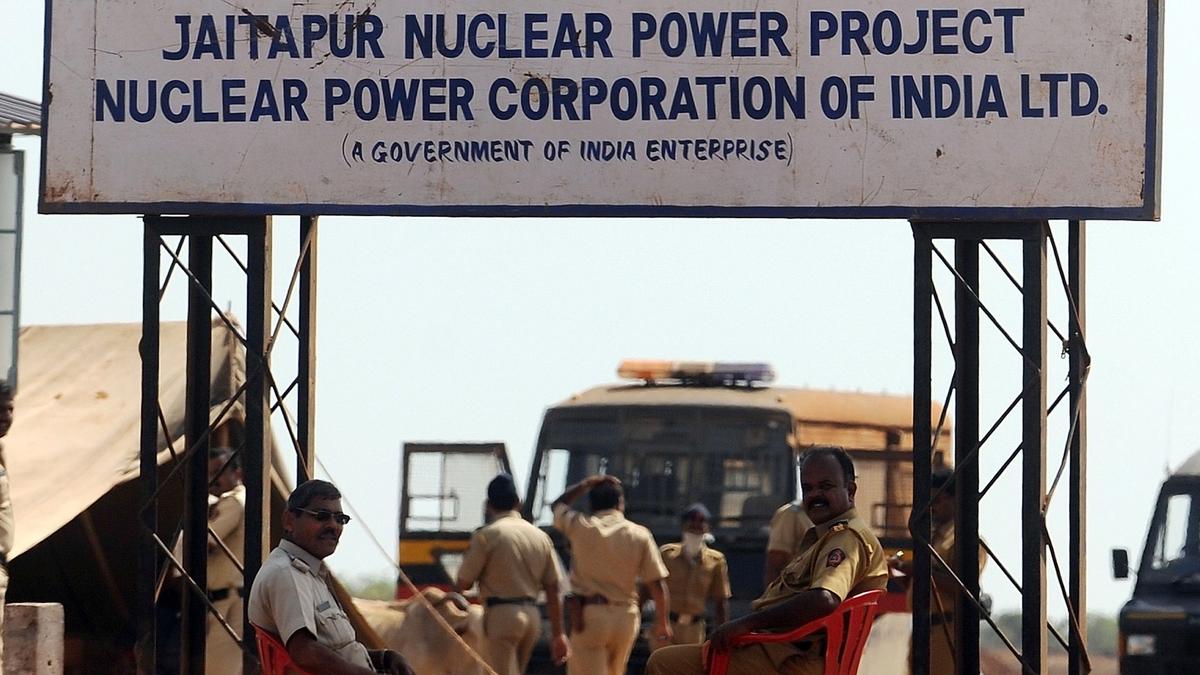 |
|
The Indian government's impending amendment to the Civil Liability for Nuclear Damages Act (CLNDA) and the Atomic Energy Act is poised to significantly impact the nation's nuclear energy sector. This move, announced ahead of Prime Minister Modi's visits to France and the United States, is intended to resolve long-standing legal concerns that have stalled collaborations with foreign nuclear power companies for over 15 years. Specifically, the amendments are expected to pave the way for the realization of projects involving Electricite de France (EDF) in Jaitapur, Maharashtra, and Westinghouse Electric Company (WEC) in Kovvada, Andhra Pradesh. The delays stem from clauses within the 2010 CLNDA, which Western companies viewed as placing excessive liability on suppliers and conflicting with international conventions such as the Convention for Supplementary Compensation for Nuclear Damage (CSC). These clauses were introduced following intense parliamentary debates fueled by concerns about the liability of foreign companies, echoing the aftermath of the Bhopal gas tragedy and the Fukushima nuclear disaster. The proposed amendments represent a significant shift from the government's 2015 stance, where it asserted that no changes to the Act were planned. This change in position highlights the strategic importance the government now places on enhancing nuclear power capacity to reach a target of at least 100 GW by 2047.
The amendments are not without their critics. While experts generally welcome the move to unblock stalled projects and facilitate engagement with new technologies, such as Small Modular Reactors (SMRs), concerns remain regarding the specifics of the proposed changes. The lack of transparency surrounding the details of the amendments has prompted calls for greater clarity and consultation with international partners. Former Foreign Secretary Shyam Saran emphasized the need for careful consideration to ensure the amendments effectively address liability concerns while simultaneously enabling progress on crucial projects. Similarly, Venkatesh Verma, former Ambassador to Russia, advocates for aligning the amended CLNDA with international conventions to create a clear, internationally consistent legal framework applicable to both domestic and international partners. This approach is seen as crucial for fostering trust and attracting foreign investment in India's burgeoning nuclear energy sector. The government's allocation of ₹20,000 crores for the development of five SMRs, expected to be operational by 2033, further underscores the commitment to expanding nuclear energy capabilities.
The timing of the announcement, coinciding with Prime Minister Modi's visits to France and the US, is no coincidence. Both nations are key players in the global nuclear power industry, and their involvement is critical for India's ambitious expansion plans. France, through EDF, has a significant stake in the Jaitapur project, while the US, through Westinghouse, is involved in the Kovvada project. The Trump administration’s emphasis on promoting US energy exports, encompassing oil, LNG, and nuclear power, adds further momentum to the situation. The discussions during these visits are likely to center on finalizing the details of the amendments and securing agreements that satisfy both Indian interests and those of its international partners. The success of these negotiations will determine whether the amendments will finally break the two-decade-long deadlock and unlock the potential of India's nuclear energy sector. The previous attempts at resolving the issue, such as the creation of an insurance pool, failed to persuade foreign companies, highlighting the need for a more comprehensive and decisive solution. The upcoming amendments present a final opportunity to achieve a breakthrough, ensuring India can leverage its nuclear energy potential while adhering to internationally accepted legal standards and safeguarding its own interests.
The long-standing impasse over liability has implications that extend far beyond the immediate financial interests of foreign energy companies. The inability to complete these projects has delayed India’s access to advanced nuclear technologies and hampered its progress toward diversifying its energy sources. The reliance on a single foreign operator, Russia's Rosatom, limits strategic options and potential for technological innovation. By addressing the liability concerns effectively, India can tap into a wider pool of international expertise and technology, fostering greater energy independence and security. This move also aligns with India's broader geopolitical strategy, enhancing its international collaborations and strengthening relationships with key partners such as France and the US. The ultimate outcome will depend on the carefully crafted language of the amendments, ensuring they are both effective in resolving the legal issues and palatable to international partners. A successful resolution will not only propel India’s nuclear energy sector forward but will also signify a significant step in its overall economic and strategic development.
